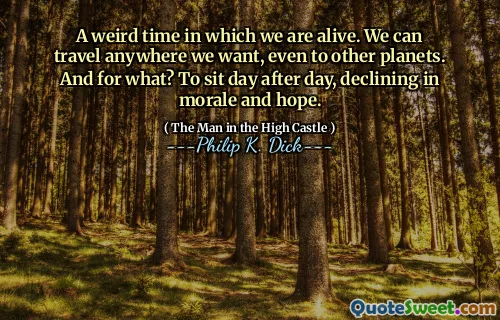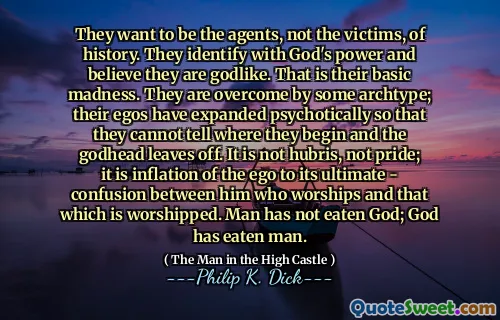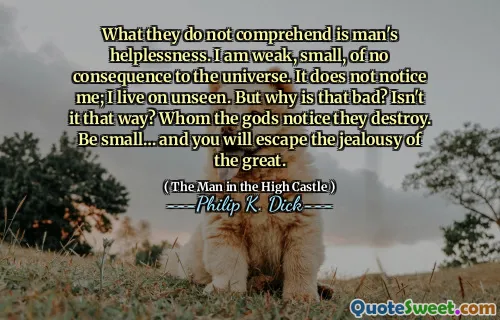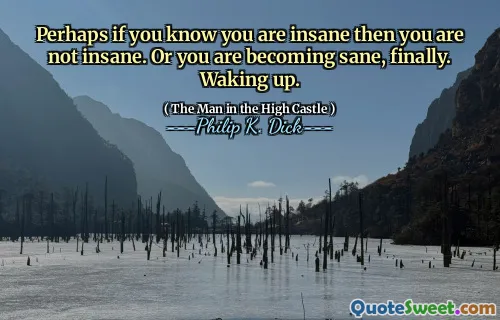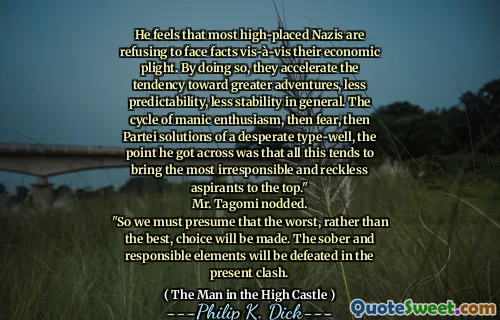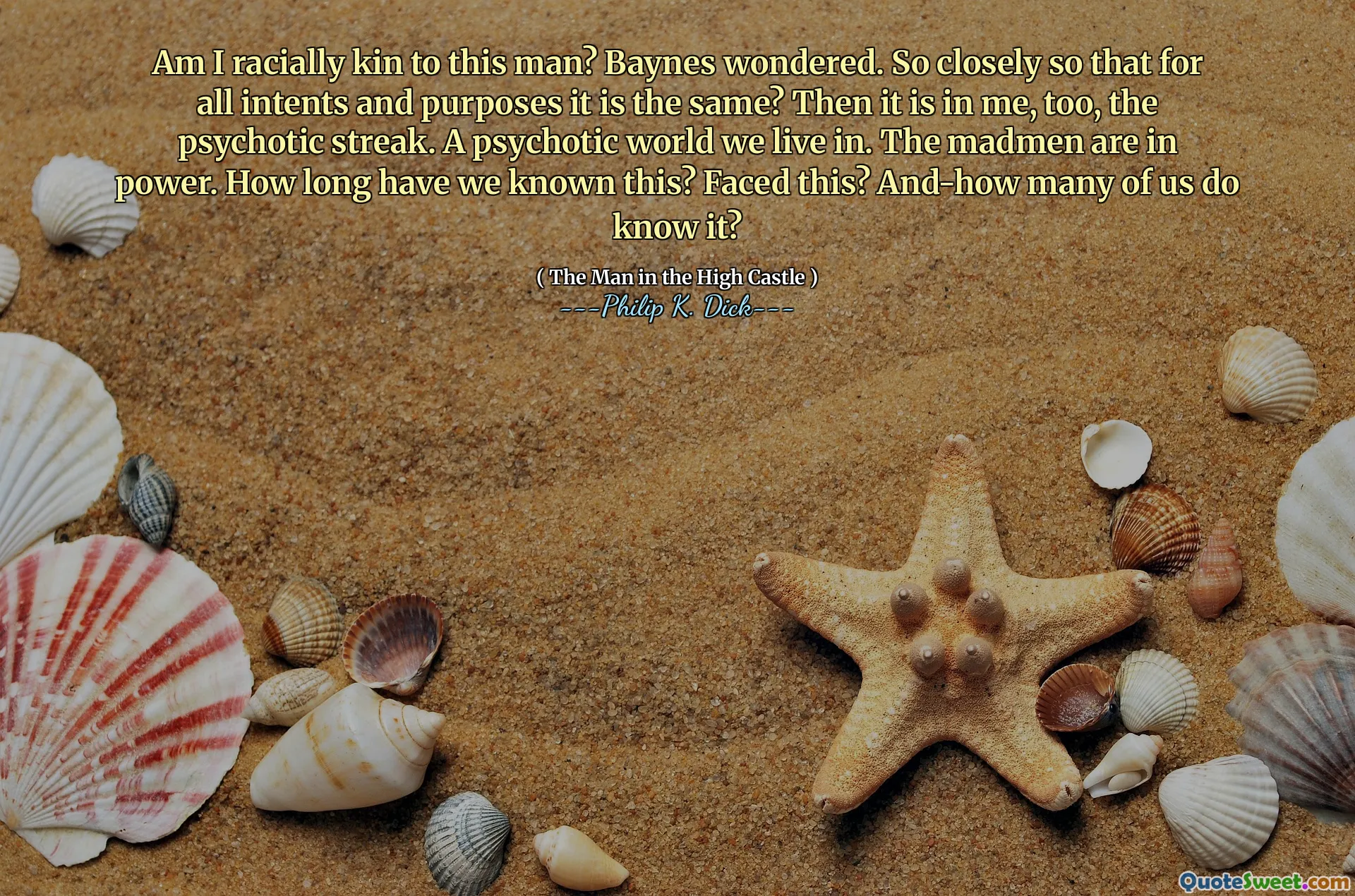
Am I racially kin to this man? Baynes wondered. So closely so that for all intents and purposes it is the same? Then it is in me, too, the psychotic streak. A psychotic world we live in. The madmen are in power. How long have we known this? Faced this? And-how many of us do know it?
In Philip K. Dick's "The Man in the High Castle," the protagonist, Baynes, reflects on the unsettling realization of his potential connection to another individual. This contemplation leads him to question if shared racial kinship implies a shared psychotic nature, suggesting that the madness within society might also reside within him. He grapples with the idea that the world is filled with chaos and irrationality, caused by those in positions of authority, stirring a sense of disquiet about human nature.
Baynes's internal struggle reveals a deeper commentary on the precariousness of sanity in a world ruled by "madmen." His inquiry about how many people recognize this disturbing reality implies a collective denial or ignorance among society. This philosophical exploration invites readers to ponder the impact of power dynamics and conformity on mental health, as well as the potential for shared psychological traits among individuals shaped by similar environments or experiences.
